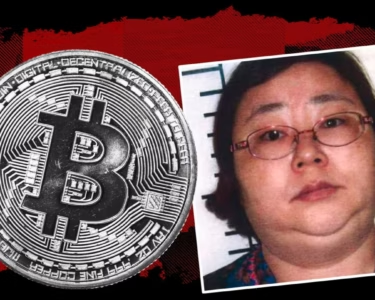In a devastating blow to thousands of investors across Nigeria and Kenya, the cryptocurrency platform CBEX—marketed as Crypto Bridge Exchange—has collapsed, leaving behind an estimated N1.3 trillion ($800 million) in losses. The platform, which operated under the guise of ST Technologies International Ltd., promised investors a staggering 100% return on their investments within just 30 days.
For many, this seemed like a golden opportunity to escape financial hardship. Economic challenges in the region, including high unemployment and inflation, have left countless individuals desperate for solutions. As the dust settles, CBEX has been exposed as a Ponzi scheme. The Securities and Exchange Commission (SEC) of Nigeria has declared it impossible to recover the victims’ funds.
The story of CBEX is a textbook case of how Ponzi schemes operate in the digital age, exploiting the allure of cryptocurrency to prey on vulnerable populations. The platform was launched in Nigeria in 2024. It claimed to be an AI-powered trading system. It enticed users with the promise of quick, guaranteed profits. Investors, ranging from small-scale savers to larger players, poured their money into the platform, often driven by a mix of hope and desperation.
Social media buzzed with success stories, further fueling the frenzy. But on a fateful Monday in April 2025, CBEX abruptly shut down, locking users out of their accounts and displaying “zero balance” on their screens. The operators vanished, leaving behind a trail of financial ruin.
The fallout has been nothing short of catastrophic. In cities like Ibadan, frustrated investors stormed CBEX’s empty offices. They carted away furniture in a futile attempt to salvage something from their losses. Online, the anguish is palpable. Posts on platforms like X paint a picture of shattered dreams. Some victims admit they invested their life savings, hoping for a better future.
The scale of the scam is staggering, with reports suggesting up to 600,000 investors were affected. For many, this was not just a financial loss but a deeply personal betrayal, as the platform had been marketed as a legitimate opportunity to break free from economic hardship.
What makes this incident particularly alarming is the role of cryptocurrency in enabling such large-scale fraud. Unlike traditional financial systems, where transactions often leave a paper trail, crypto operates in a decentralized, often anonymous space. CBEX reportedly used USDT, a stablecoin, to move funds through centralized exchanges, which could have been tracked with proper oversight.
Yet, the lack of regulation in Nigeria’s crypto space allowed the scheme to flourish unchecked. While the SEC has long warned against Ponzi schemes, its inability to prevent CBEX from operating under its watch raises serious questions about the effectiveness of regulatory oversight in the country.
The CBEX collapse also underscores a broader issue: the vulnerability of Nigerians to financial scams in an environment of economic instability. With unemployment rates soaring past 30% and inflation eroding purchasing power, many turn to high-risk schemes as a lifeline. The promise of quick wealth is a powerful lure.
This is particularly true in a society where traditional avenues for financial growth are out of reach for most. Stable jobs or accessible loans are not available. This desperation, however, creates fertile ground for fraudsters. They exploit the lack of financial literacy. Regulatory enforcement is weak, allowing them to perpetrate their schemes.
Adding to the complexity is Nigeria’s fraught relationship with cryptocurrency. In 2021, the Central Bank of Nigeria banned banks from facilitating crypto transactions, citing concerns over money laundering and terrorism financing. Yet, the ban has driven the industry underground, with peer-to-peer trading platforms becoming a hotspot for both legitimate traders and scammers.
The introduction of the eNaira, Nigeria’s official digital currency, was meant to provide a regulated alternative, but its slow adoption and technical glitches have left many relying on unregulated platforms like CBEX. This regulatory gray area has made it nearly impossible to trace or recover funds lost to crypto scams, as the SEC’s recent statement confirms.
So, where do we go from here? The CBEX debacle should serve as a wake-up call for both regulators and the public. For the government, it’s clear that stronger measures are needed to combat fraudulent schemes before they spiral out of control. This means implementing stricter oversight of crypto platforms. Rapid response mechanisms are also necessary to shut down suspicious operations. Additionally, international collaboration is crucial to track and apprehend perpetrators who often operate across borders.
The Economic and Financial Crimes Commission (EFCC) has launched an investigation into CBEX. However, history suggests that recovering funds in such cases is unlikely. Past scams were damaging. The infamous MMM Ponzi scheme collapsed in 2017. It left millions of Nigerians empty-handed, with little to no recourse.
For the public, the lesson is harsh yet necessary. If something sounds too good to be true, it probably is. Promises of guaranteed high returns are a red flag. This is especially true in a volatile space like cryptocurrency. These signals should not be ignored. Nigerians need financial literacy programs. These programs must educate them on the risks of such investments.
They should also stress the importance of due diligence. Before investing, individuals should verify a platform’s registration with the SEC. They need to research its operators. They should be wary of schemes that pressure them to recruit others. This is a hallmark of Ponzi structures.
The CBEX collapse is a tragedy, but it’s also an opportunity to address the systemic issues that allowed it to happen. Nigeria’s financial ecosystem needs a overhaul—one that balances innovation with oversight, and opportunity with accountability. Until then, the dreams of quick wealth will continue to lead many down a path of despair, as the scars of CBEX remind us all of the high cost of unchecked greed and regulatory failure.






